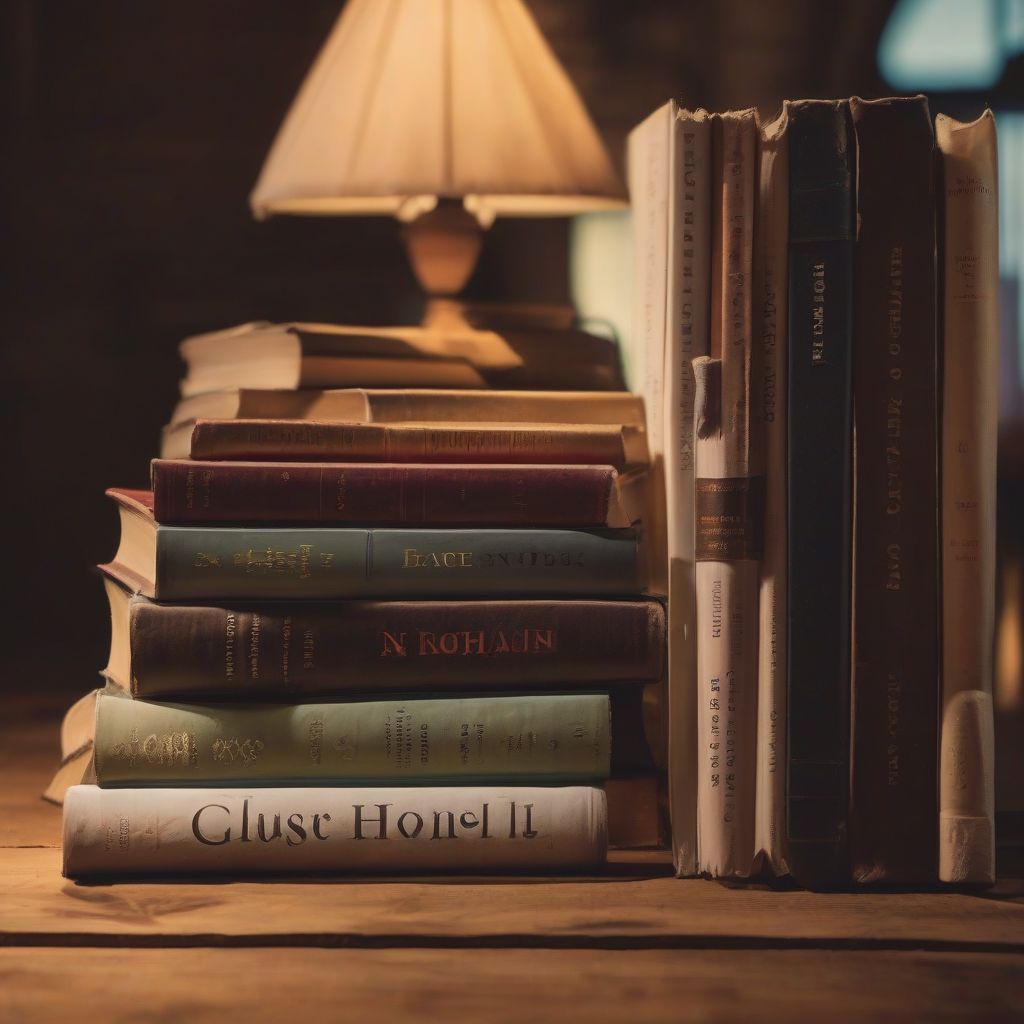Have you ever found yourself craving a story that transcends time, a narrative that resonates with the human experience across generations? Then look no further than the world of classic novels. These timeless masterpieces offer profound insights into the human condition, explore universal themes, and transport us to different eras and cultures. Embark on this literary journey with us as we explore some of the best classic novels to read in your lifetime.
Why Read Classic Novels?
In a world saturated with fleeting trends, classic novels offer a sense of permanence. They are the literary equivalent of a comforting meal, nourishing our minds and souls. But why are these books considered “classics”? What sets them apart from the countless others published throughout history? They possess enduring qualities that continue to captivate readers:
- Literary Merit: Classic novels are often characterized by their exceptional writing style, complex characters, and thought-provoking themes.
- Cultural Impact: These books have shaped our cultural understanding, influencing art, music, and even political thought.
- Timeless Themes: They grapple with universal themes of love, loss, ambition, and morality that remain relevant regardless of the era.
Exploring the Canon: Must-Read Classic Novels
So, which classics deserve a spot on your reading list? Here are some suggestions, spanning diverse genres and time periods, to help you embark on your literary adventure:
For the Romantic at Heart:
- Jane Austen’s Pride and Prejudice: This witty social commentary explores the complexities of love and societal expectations in 19th-century England. As renowned literary critic Harold Bloom noted, “Austen’s genius lies in her ability to depict the nuances of human relationships with both humor and compassion.”
- Charlotte Brontë’s Jane Eyre: A powerful story of a young woman’s journey to self-discovery and love, Jane Eyre explores themes of social class, gender, and resilience. “I am no bird; and no net ensnares me: I am a free human being with an independent will,” proclaims Jane, a testament to the novel’s enduring message of female empowerment.
- Leo Tolstoy’s Anna Karenina: A sweeping epic exploring themes of adultery, social alienation, and the search for meaning in a rapidly changing world. Tolstoy’s masterpiece examines the devastating consequences of passionate love in a restrictive society.
For the Adventurous Soul:
- Homer’s The Odyssey: This ancient Greek epic poem recounts the perilous journey of Odysseus as he struggles to return home after the Trojan War. The Odyssey explores themes of heroism, perseverance, and the lure of the unknown.
- Herman Melville’s Moby Dick: A thrilling tale of obsession and revenge, Moby Dick follows Captain Ahab’s relentless pursuit of the elusive white whale. The novel delves into the depths of human ambition and the destructive nature of vengeance.
- Mark Twain’s The Adventures of Huckleberry Finn: This American classic follows the adventures of a young boy and a runaway slave as they journey down the Mississippi River. Huckleberry Finn offers a poignant commentary on racism, freedom, and the complexities of human nature.
For the Introspective Reader:
- Fyodor Dostoevsky’s Crime and Punishment: A psychological thriller that explores the moral consequences of transgression, Crime and Punishment delves into the mind of a tormented young man who commits murder. Dostoevsky’s masterpiece examines the nature of guilt, redemption, and the human capacity for both good and evil.
- Albert Camus’ The Stranger: This existentialist novel explores themes of alienation, absurdity, and the search for meaning in a meaningless world. Camus’ protagonist, Meursault, embodies a sense of detachment from society and its conventions.
- George Orwell’s 1984: A dystopian masterpiece that warns against totalitarian regimes and the dangers of unchecked power. 1984 remains chillingly relevant in its exploration of surveillance, censorship, and the suppression of individual thought.
 Classic Novels
Classic Novels
Starting Your Journey
Don’t feel overwhelmed by the sheer volume of classic literature available. Start with a book that genuinely interests you, whether it’s a captivating adventure, a poignant love story, or a thought-provoking exploration of the human condition. Join online book clubs or discussion groups to share your insights and connect with fellow readers. Most importantly, enjoy the process of discovery. Allow yourself to be transported to different worlds and immersed in the rich tapestry of human experience.
Continuing the Exploration
This is just a starting point. The world of classic literature is vast and varied, offering endless opportunities for exploration and discovery. From ancient epics to modern masterpieces, there’s a classic novel waiting to be unearthed by every reader. So, pick up a book, settle into a comfortable chair, and prepare to be captivated by the power of storytelling.
Conclusion
Reading classic novels is more than just a pastime; it’s an enriching experience that expands our understanding of ourselves and the world around us. These timeless stories offer profound insights into the human condition, challenge our perspectives, and inspire us to think critically. So, embark on this literary adventure, explore the vast landscape of classic literature, and discover the transformative power of these enduring masterpieces. What are your favorite classic novels? Share your thoughts and recommendations in the comments below! We’d love to hear from you. Also, feel free to share this article with fellow book lovers and help spread the joy of reading.



